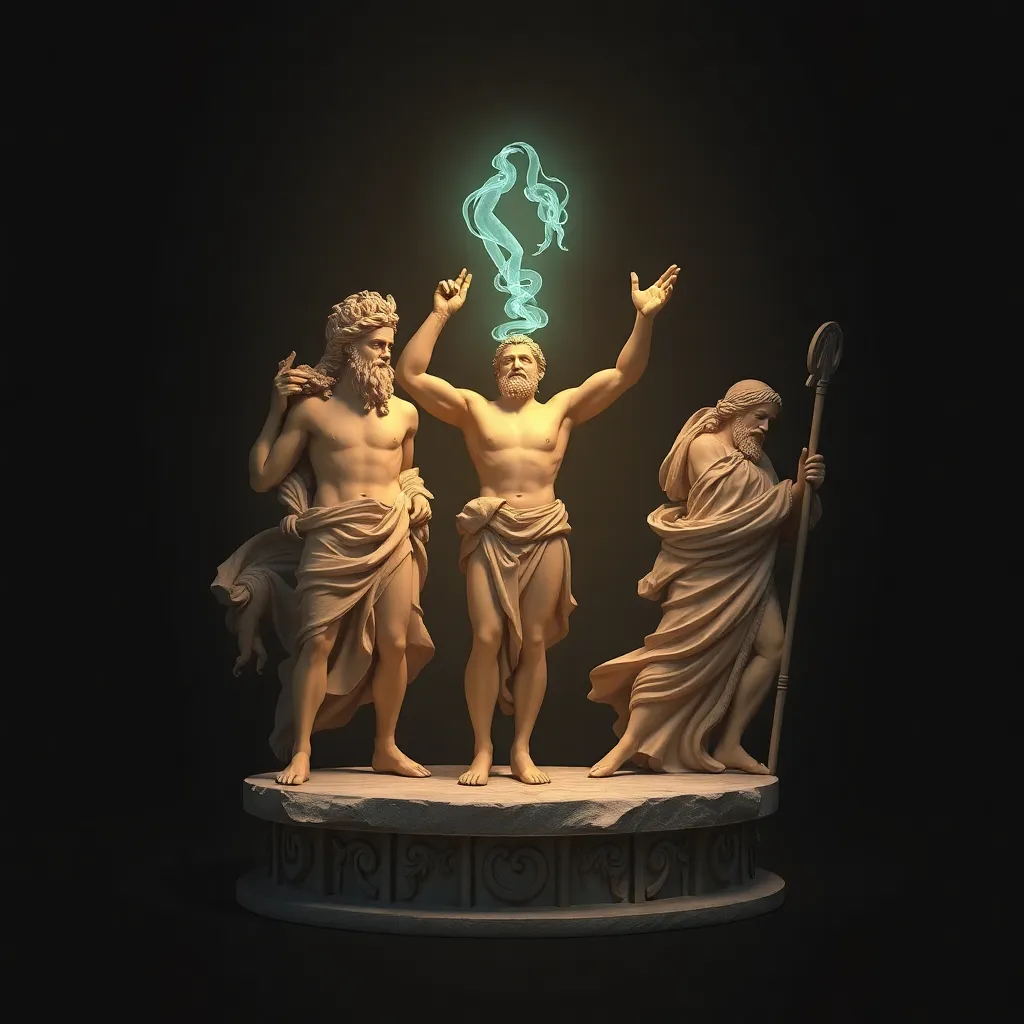The Olympians and Their Connection to the Cycle of Life: Birth, Death, Rebirth
I. Introduction
The Olympians, the principal deities of ancient Greek mythology, hold a significant place in the cultural and spiritual life of the ancient Greeks. They resided atop Mount Olympus and were revered for their immense powers, personality traits, and the myths surrounding them. Each Olympian represented various aspects of life and nature, influencing everything from human destiny to the natural world.
In mythology, the concept of the cyclical nature of life—birth, death, and rebirth—plays a crucial role. This cycle reflects not only the natural processes of the world but also the spiritual beliefs of the ancient Greeks. This article aims to explore how the Olympians embody these themes and their implications for understanding the human experience.
II. The Olympians: Who Are They?
The Olympians are a group of twelve major gods and goddesses in Greek mythology, each with distinct roles and attributes:
- Zeus: King of the gods, god of the sky and thunder.
- Hera: Queen of the gods, goddess of marriage and family.
- Poseidon: God of the sea, earthquakes, and horses.
- Athena: Goddess of wisdom, warfare, and crafts.
- Apollo: God of the sun, music, and prophecy.
- Artemis: Goddess of the hunt and wilderness.
- Aphrodite: Goddess of love and beauty.
- Ares: God of war.
- Hephaestus: God of fire and craftsmanship.
- Demeter: Goddess of agriculture and harvest.
- Dionysus: God of wine, pleasure, and festivity.
- Hermes: Messenger of the gods, god of commerce and thieves.
The importance of the Olympians in ancient Greek culture cannot be overstated. They were central to religious practices, artistic expression, and the moral and ethical frameworks of society.
III. Birth: Creation Myths and Divine Lineage
The origins of the Olympians can be traced back to the primordial entities of Chaos and Gaia. From their union, the Titans were born, and eventually, the Olympians emerged as the next generation of gods.
Key myths surrounding the birth of major deities include:
- Zeus: Hidden from his father Cronus, who swallowed his children, Zeus was raised in secret and later led a revolt against Cronus to free his siblings.
- Hera: Zeus’s sister and wife, born from the Titans Rhea and Cronus, she was known for her protective nature over marriage.
- Athena: Born fully grown and armored from Zeus’s forehead, symbolizing wisdom and strategic warfare.
The symbolism of birth in these myths reflects themes of power, creation, and the natural order of the universe, illustrating the divine lineage and the establishment of authority among the gods.
IV. Death: The Underworld and the Cycle of Mortality
Death in Greek mythology is intricately linked to the Underworld, ruled by Hades, the god of the dead. The Underworld was not merely a place of punishment but a realm where all souls went after death, signifying the end of mortal life.
Myths surrounding death include:
- The story of Orpheus, who ventured into the Underworld to retrieve his wife Eurydice, symbolizing love’s power over death.
- The tale of Persephone, who was abducted by Hades and became the queen of the Underworld, representing the duality of life and death.
The significance of death as a transformative force in mythology is profound. It serves as a reminder of mortality and the transient nature of life, compelling both gods and mortals to confront their destinies.
V. Rebirth: Renewal and Transformation
The theme of rebirth is vividly illustrated in the myth of Persephone’s return to the surface world each spring, symbolizing the renewal of life and the agricultural cycle.
Key aspects of rebirth include:
- Persephone’s Return: Her annual return from the Underworld signifies the arrival of spring and the fertility of the earth.
- Seasonal Cycles: The changing seasons in Greek mythology reflect the cycles of life, death, and rebirth, emphasizing the connection between nature and the divine.
Rebirth symbolizes hope and continuity, reminding humanity that life persists despite death and decay, offering a cyclical view of existence.
VI. The Interconnectedness of Birth, Death, and Rebirth
The Olympians embody the cyclical nature of existence through their myths and interactions. These themes are interconnected, presenting a holistic view of life that is both enriching and complex.
Examples of myths illustrating this interconnectedness include:
- The cycle of Persephone and Demeter, which intertwines birth (the planting season), death (the barren winter), and rebirth (the spring harvest).
- The myth of Dionysus, who dies and is reborn, representing not only the cycle of nature but also the human experience of suffering and joy.
The philosophical implications of these cycles in ancient Greek thought encourage reflection on the nature of existence and the inevitability of change, resonating with the human condition.
VII. The Legacy of the Olympians in Modern Culture
The influence of Olympian myths extends into contemporary literature, art, and culture, where the themes of birth, death, and rebirth remain relevant. Modern interpretations often explore these themes through various lenses:
- Literature: Authors frequently draw on mythological themes to explore human emotions and experiences.
- Art: Visual artists depict the Olympians to comment on contemporary issues, reflecting the timeless nature of these myths.
These themes continue to resonate in today’s society, as individuals seek meaning in life’s cycles and the inevitability of change.
VIII. Conclusion
The Olympians are intricately connected to the cycle of life, embodying the themes of birth, death, and rebirth through their myths and narratives. These stories offer insights into human existence, reflecting the timelessness of these cycles in our experience.
Understanding mythology in relation to life’s cycles provides a profound perspective on our own journeys, encouraging us to embrace the interconnectedness of existence and the hope inherent in renewal.




